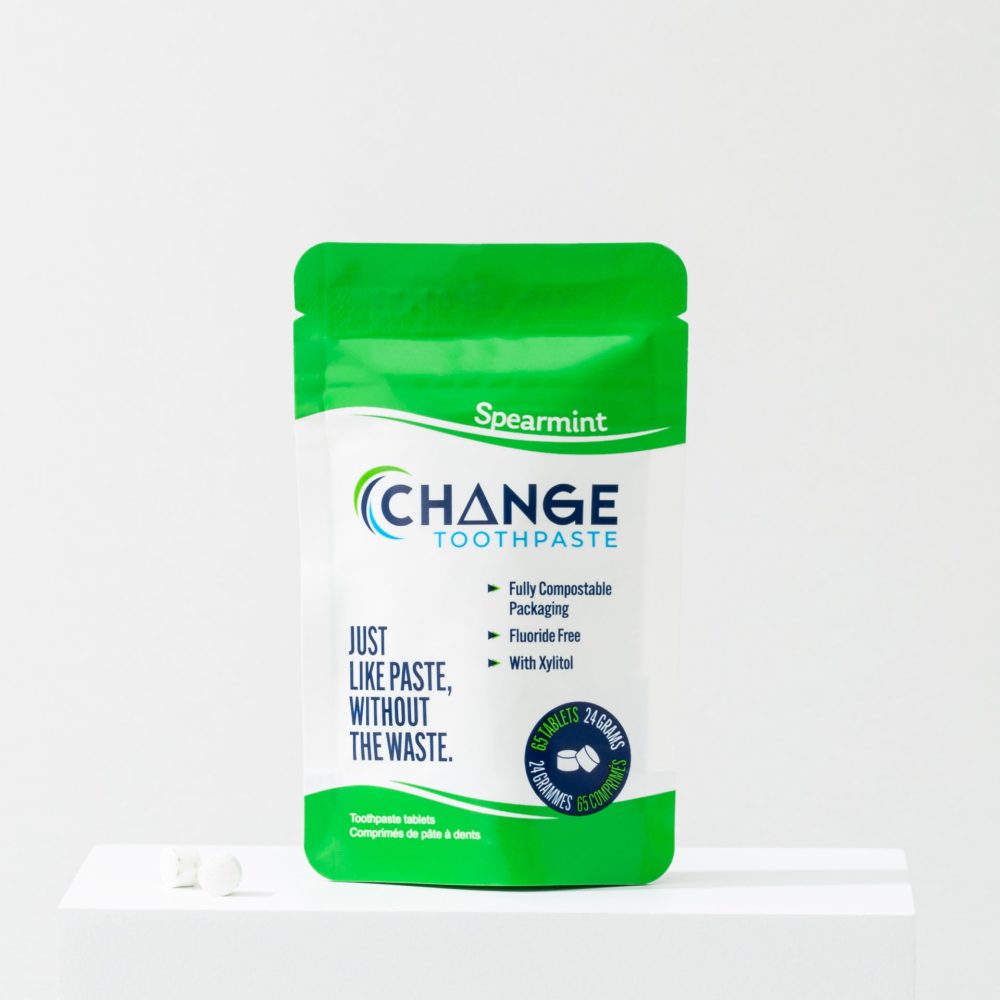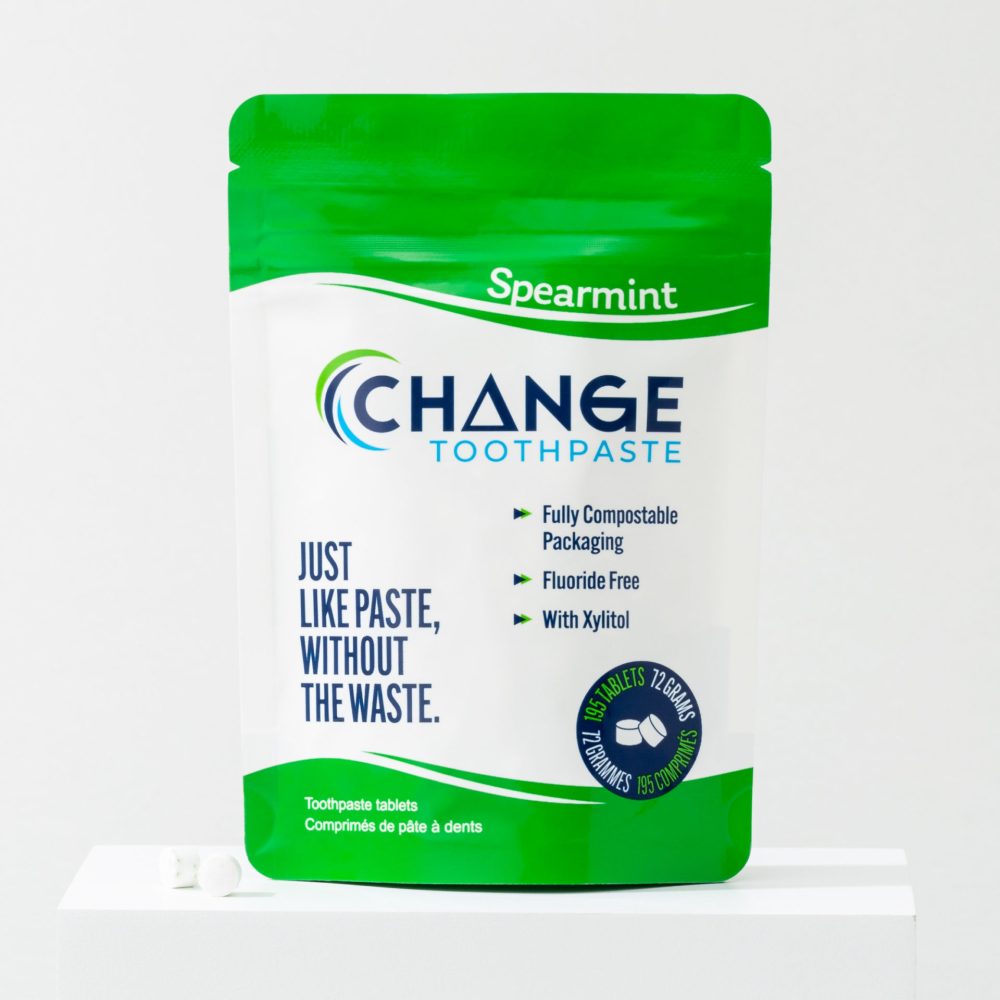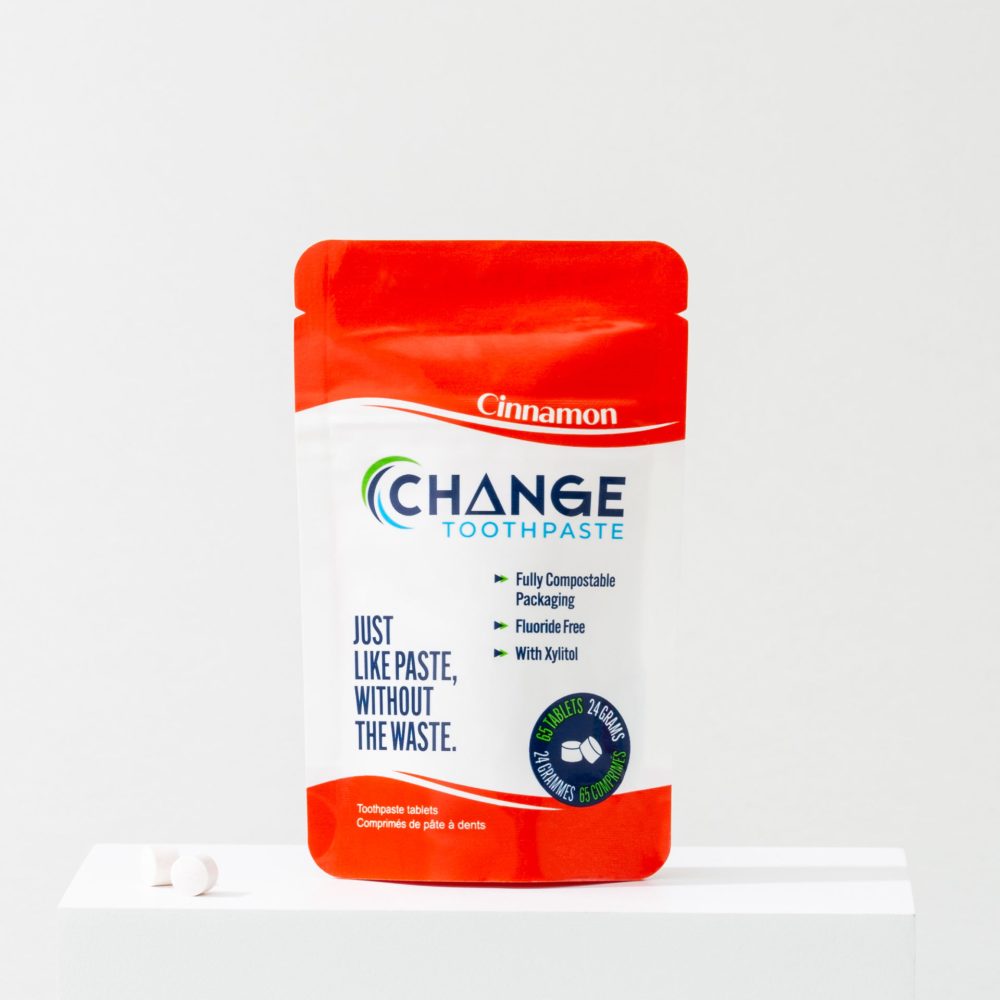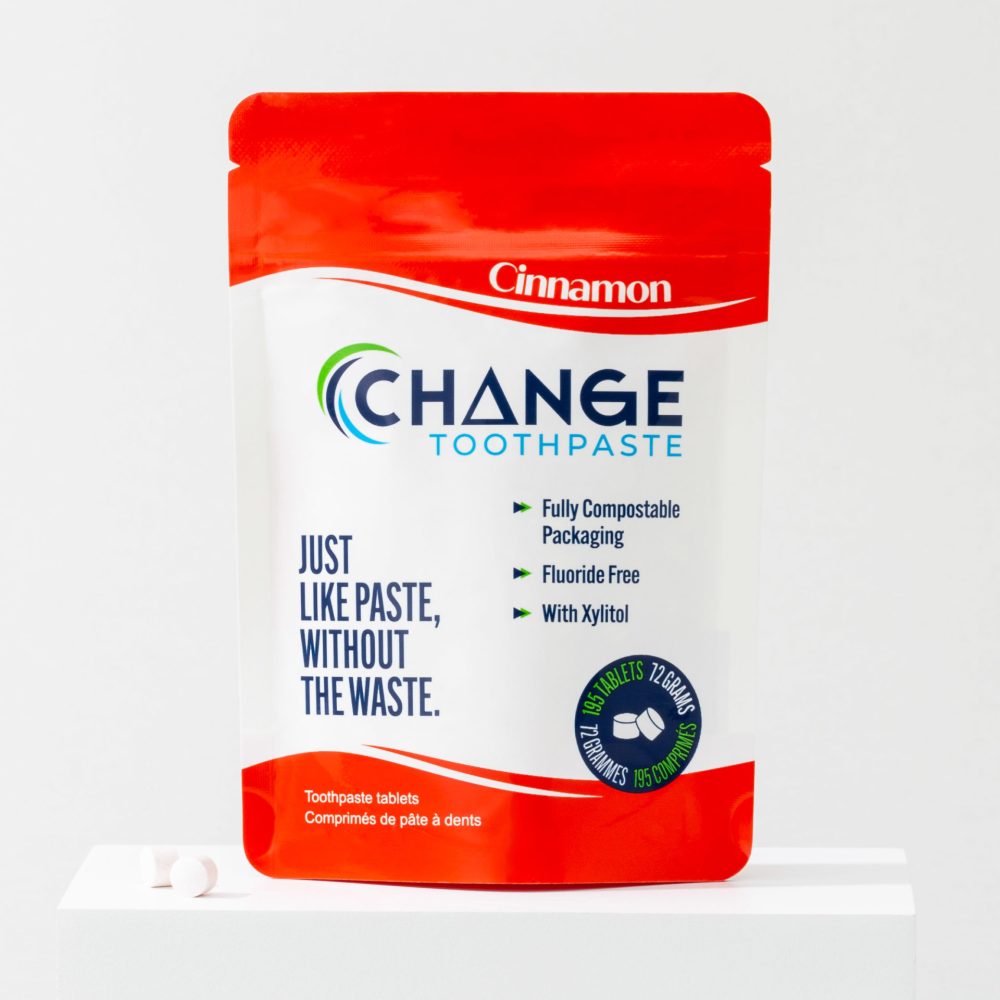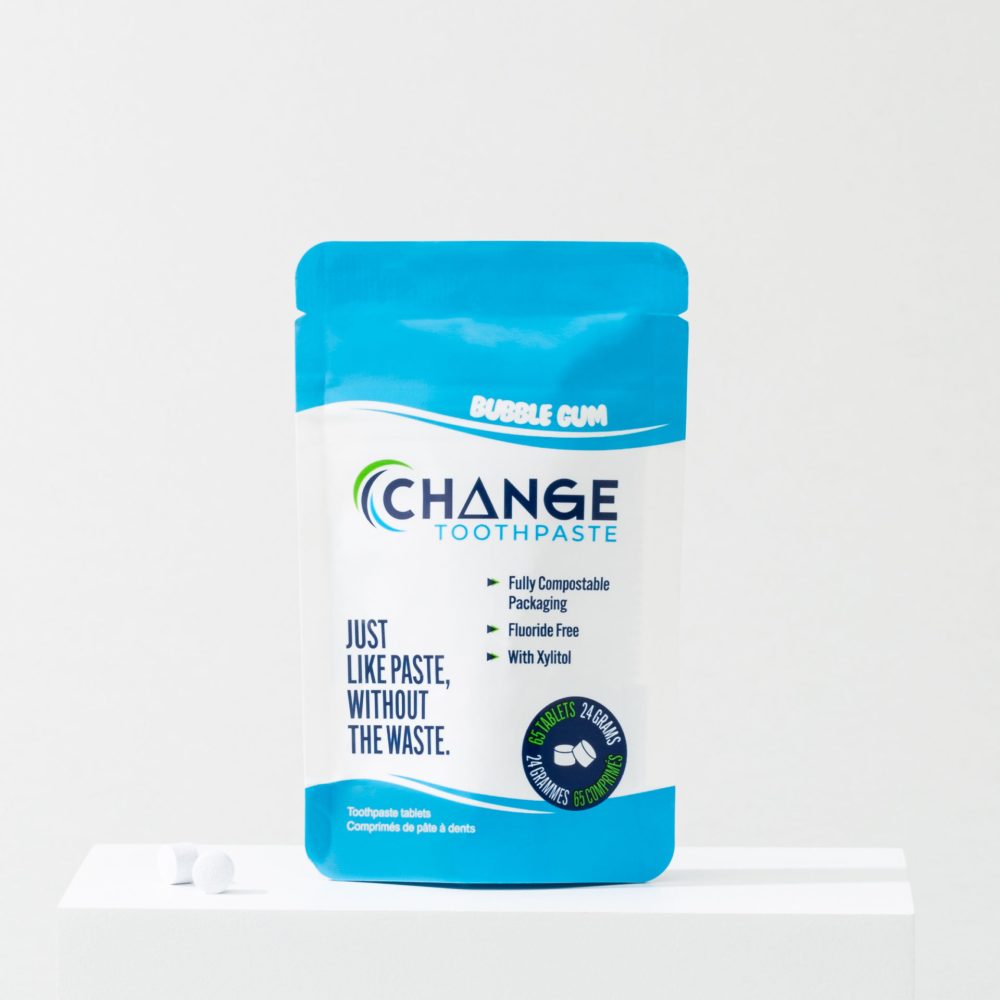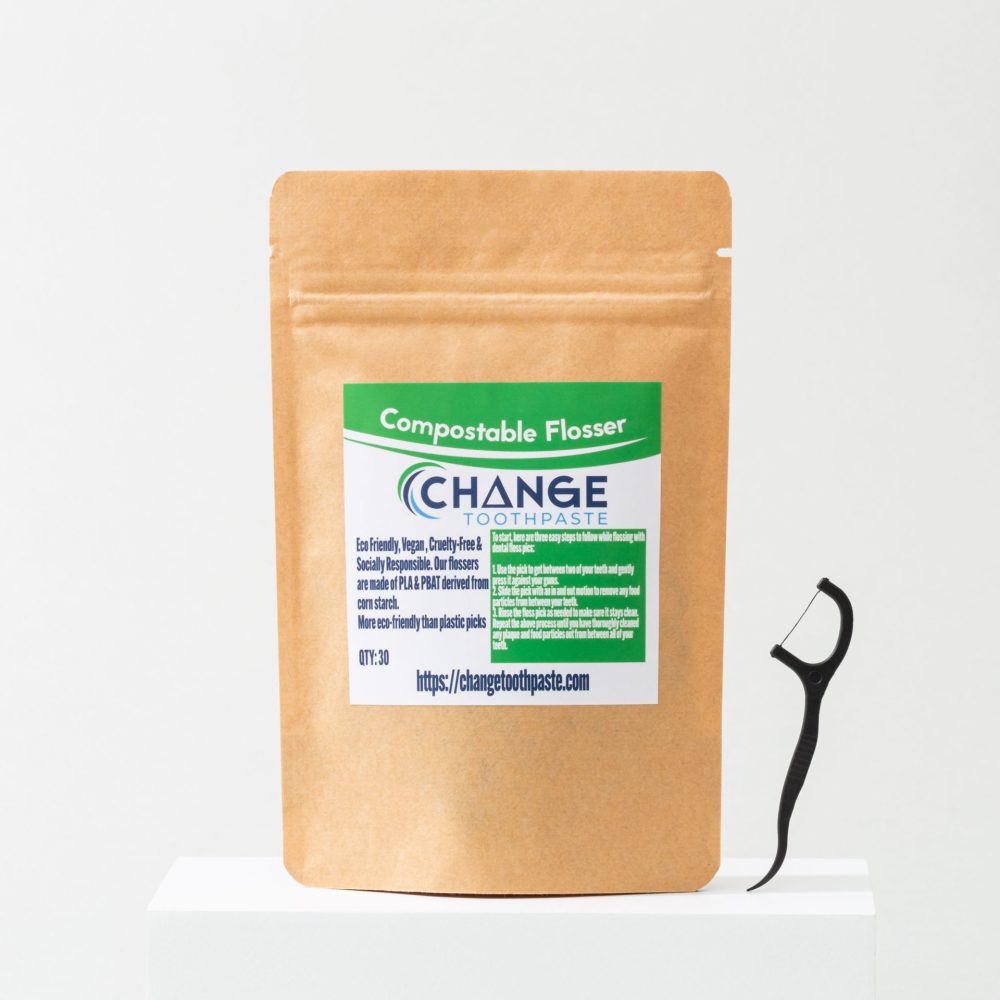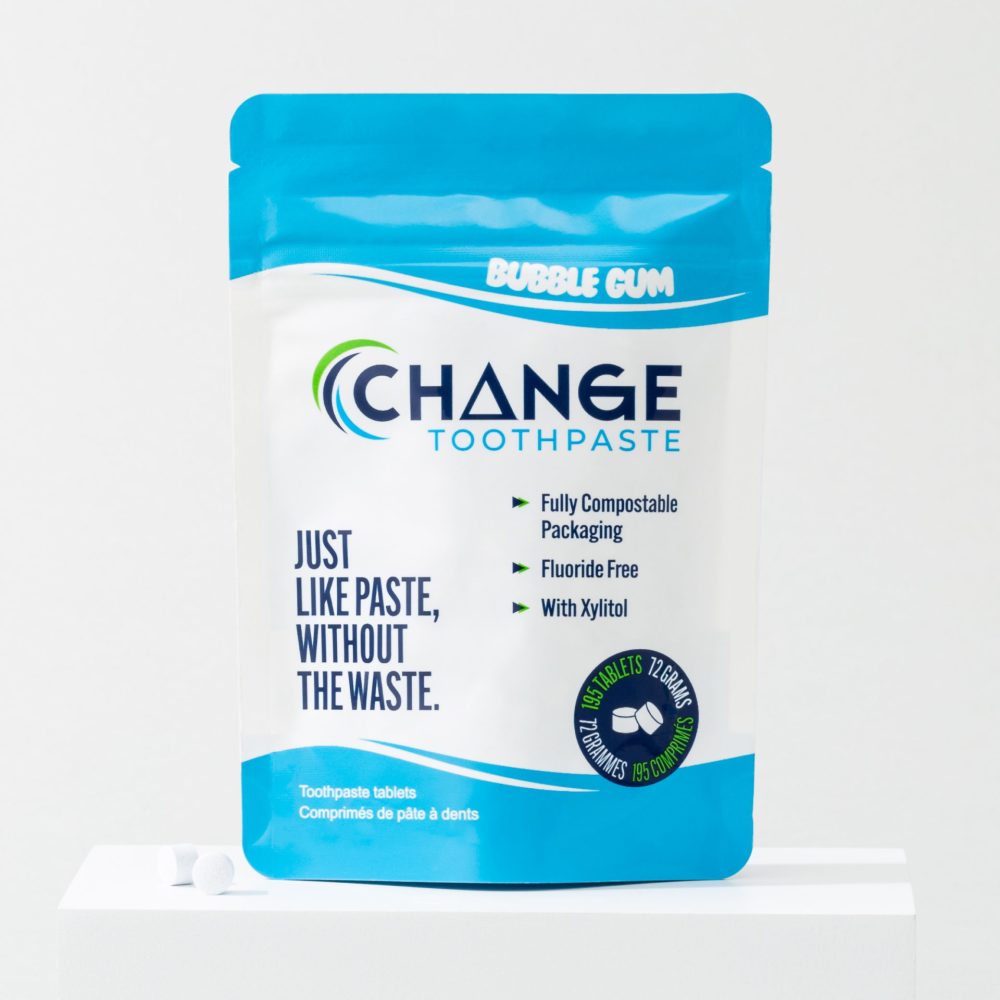You may be intrigued by natural toothpaste and want to give it a try. There are undoubtedly many benefits to natural toothpaste, from less waste to gentler ingredients. But if you’re prone to cavities, it’s normal to feel wary of a new product. You may be wondering, “does natural toothpaste work?”
More likely than not, all you know is standard toothpaste. You squeeze a glob of it onto your toothbrush, brushing away mindlessly. The “prevents cavities” claim makes you feel confident, and you enjoy the fiercely minty aftertaste. You brush for a few seconds, imagining the toothpaste making a protective force field around your teeth. Once you’ve squeezed it for all its worth, you finally toss the empty plastic tube in the trash.
That’s usually how the tooth brushing routine goes. But do you ever stop to think about what ingredients in the generic variety prevent cavities? Do you need all those hard-to-pronounce additives, or can natural ingredients do the job just as well? To answer the question, “Does natural toothpaste work?”, let’s first compare natural toothpaste with the generic variety.
Natural toothpaste ingredients
Here are the ingredients included in our all-natural toothpaste tabs.
Xylitol
Xylitol is a natural sugar-free sweetener made from birch bark. It helps to prevent cavities by reducing acidity in the mouth and remineralizing enamel. It also adds a pleasant sweetness.
Natural mint flavour
Real spearmint extract and menthol are added to improve flavour and add that signature minty freshness.
Sodium C14-16 olefin Sulfonate
Don’t let the complicated name scare you off. This plant-based foaming agent creates a nice lather, delivering an experience similar to regular toothpaste.
Silicon dioxide
Silicon dioxide helps to prevent clumping in the tab, and it’s also a mild foaming agent. It is naturally derived from the Earth’s crust.
Sodium bicarbonate
More widely known as baking soda, this natural polishing agent reduces acidity in the mouth, helping to prevent cavities.
Dicalcium phosphate
This is a polishing agent that also assists in tablet binding.
Environmentally friendly packaging
Change Toothpaste Tabs come in compostable packets made of cellulose, making them perfect for your backyard composter. Our packaging bears several certifications, including the USDA Biobased certification and the FSC certification.
Standard toothpaste ingredients
While ingredients vary between products, let’s look at some of the most common ingredients found in standard toothpaste.
Fluoride
On the list of ingredients, fluoride is the only one marked ‘medicinal’. It effectively prevents cavities by strengthening the enamel. Though fluoride can be dangerous in high amounts, generic toothpaste doesn’t generally contain enough fluoride to harm you.
Artificial sweeteners
Sorbitol, sodium saccharin and aspartame are common artificial sweeteners found in generic toothpaste. In the early 2000s, aspartame was flagged as a possible carcinogen but is now considered safe by the FDA. If you feel uneasy about artificial sweeteners in spite of this, it’s best to stick with natural sugar alternatives.
Abrasives
Hydrated silica and mica are common abrasive agents that polish teeth, aiding in removing plaque and biofilm. Toothpaste with a high RDA (relative dentin abrasion) can degrade your enamel. RDA levels top out at 250, but the ideal range is 0-70.
Titanium dioxide
This purely cosmetic ingredient enhances the white colour or brightness of products. It’s banned in the EU as a food additive because it can cause harm when inhaled, and it may be carcinogenic.
Blue 1 “Brilliant Blue” FCF
Also called “brilliant blue,” this blue food colouring is purely cosmetic. It’s a possible carcinogen, and it may cause allergic reactions, especially in asthmatic people.
Triclosan
This ingredient acts as an anti-bacterial and preservative agent. Unfortunately, it’s an endocrine disruptor, meaning it interferes with hormones. It’s also been known to create antibiotic resistant strains of bacteria.
Sodium lauryl sulfate
SLS is a foaming agent and an emulsifier. Its possible harms include skin, eye, and respiratory tract irritation, and it is a possible carcinogen and endocrine disruptor.
Plastic tube
Plastic toothpaste tubes are made of #2 HDPE polyethylene, a recyclable plastic. While this plastic may in theory be recyclable, there’s a small chance that your tube will actually get recycled. Remember that only 8 percent of our plastic waste actually gets recycled; the rest ends up in landfills.
Does toothpaste without fluoride work?
Yes, you can prevent cavities without fluoride. Other ingredients besides fluoride are effective in preventing cavities. Baking soda reduces acidity in your mouth, making it harder for cavities to form, and xylitol remineralizes enamel.
What’s the best way to prevent cavities?
When it comes to preventing cavities, nothing beats a good dental hygiene routine. This means brushing and flossing properly 2 to 3 times a day. Equally important is visiting the dentist regularly for check-ups and cleanings.
Fluoride: yay or nay?
Fluoride has mixed reviews. Children can develop mild fluorosis, a harmless, cosmetic issue where white or brown spots appear on their teeth. In rarer cases, skeletal fluorosis can occur, a painful condition where the bones become weak. Skeletal fluorosis tends to be the result of polluted water rather than toothpaste misuse. If you’re worried, teach your children not to swallow fluoridated toothpaste.
What are some other sources of fluoride?
Many natural toothpastes don’t contain fluoride. However, if you’ve come to the conclusion that fluoride is good for you, there are a few sources. You can still get your fluoride fix by rinsing with a fluoride-based mouthwash. There are also trace amounts of fluoride in tap water, specifically for preventing dental decay.
Fluoride is a regulated drug, and companies jump through lots of hoops to get a license to use it commercially. We will be launching a fluoridated tab soon, so you can have the choice. Stay tuned!
Is natural toothpaste worth it?
Natural toothpaste is made with all-natural ingredients that are mild cleaners and abrasives. For people with sensitive mouths who don’t respond well to generic toothpaste, natural toothpaste can be a godsend. They don’t come with unnecessary cosmetic ingredients like artificial sweeteners, harmful dyes, or heavy-duty abrasives.
Not only do these substances harm our health–they harm our waterways and marine life once they go down the drain. It’s not worth risking your overall health, or the health of the planet, for aesthetically pleasing toothpaste. A combination of natural ingredients and proper brushing and flossing technique is sufficient for preventing cavities. So, consider brushing up on your oral hygiene routine, and get your chew on!
Looking for more information about our natural toothpaste tabs? Check out our FAQ section.



